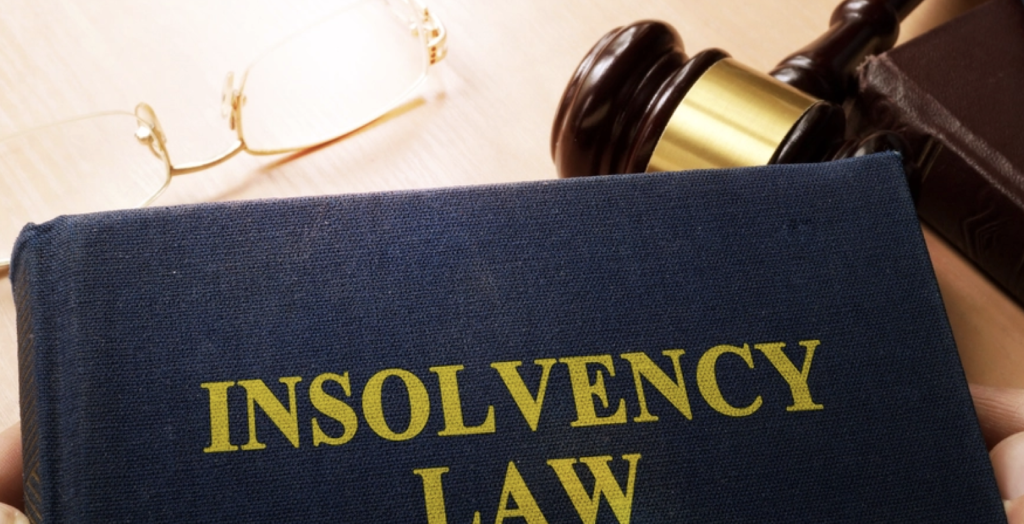About Insolvency Practitioner
About Insolvency Practitioner
Blog Article
10 Simple Techniques For Insolvency Practitioner
Table of ContentsThe Only Guide to Insolvency PractitionerIndicators on Insolvency Practitioner You Need To KnowSome Known Details About Insolvency Practitioner How Insolvency Practitioner can Save You Time, Stress, and Money.How Insolvency Practitioner can Save You Time, Stress, and Money.Insolvency Practitioner - QuestionsOur Insolvency Practitioner Statements
Insolvency is when obligations are higher than the worth of the business, or when a borrower can not pay the financial debts they owe. A business can become insolvent as a result of a variety of circumstances that result in bad capital. When faced with bankruptcy, a business or person can get in touch with creditors directly and restructure financial debts to pay them off.
Bankruptcy can lead to bankruptcy proceedings, in which legal activity will certainly be taken versus the bankrupt individual or entity, and properties. Insolvency Practitioner may be sold off to settle superior debts. Entrepreneur might speak to financial institutions directly and restructure financial obligations into more convenient installments. Financial institutions are normally open to this strategy since they want to be paid off and stay clear of losses, also if the payment is on a delayed timetable.
The proprietor produces a proposal describing how the debt might be restructured using cost decreases or other prepare for support. The proposal shows financial institutions how the company might generate adequate capital for rewarding procedures while paying its financial debts. Typically, a forgiven financial debt may be considered income by the Irs (IRS).
The Best Guide To Insolvency Practitioner
When a business needs to pay increased costs for items and solutions, the firm passes along the cost to the customer. Instead of pay the increased price, many customers take their service elsewhere so they can pay less for a product or solution. Losing clients results in losing revenue for paying the company's financial institutions.
When operations stop, so does the firm's revenue. Some business end up being insolvent because their items or services do not progress to fit consumers' changing requirements.
Everything about Insolvency Practitioner
Expenditures exceed incomes and costs continue to be unpaid. Sorts of bankruptcy include cash-flow insolvency and balance-sheet bankruptcy. Cash-flow insolvency occurs when a company has the assets to cover their debts however they remain in the incorrect kind, such as realty rather than fluid funds. Balance-sheet bankruptcy, on the other hand, indicates a lack of assets in any type of form to cover financial obligations.
The internal revenue service states that a person is insolvent when the overall liabilities exceed overall possessions. Insolvency Practitioner. A bankruptcy, on the other hand, is an actual court order that shows just how a bankrupt person or service will certainly repay their creditors, or just how they will certainly offer their assets in order to make the settlements
The Basic Principles Of Insolvency Practitioner
If that situation expands longer than anticipated, it can bring about bankruptcy. When a firm or individual is bankrupt, they can not meet their monetary obligations. Solvency is when you have enough funds to cover the settlements you owe. A company is thought about solvent when they have a lot more properties than responsibilities.

Recognizing the factors that can bring about bankruptcy, such as overspending, can help you prevent bankruptcy and its effects.
What Does Insolvency Practitioner Mean?
It see this here is popular that supervisors and officers of firms (and supervisors of restricted liability business) owe fiduciary tasks to their organizations and their investors (or members). These fiduciary responsibilities are specified by state laws and, though there are variations from one state to another, they usually consist of a task of find more info commitment and a task of care.
The task of care needs directors and policemans to work out diligence, to make enlightened decisions, and to act in good faith to ensure that their activities remain in the very best rate of interest of the business. Though past the scope of this discussion, some states allow these responsibilities to be limited either by so noting in the organizational documents or following various other needs.
Not known Details About Insolvency Practitioner

Take care concerning offering investors favoritism at the expense of financial institutions (e.g., authorizing and funding a returns or a stock redemption). Beware concerning preferential treatment between courses of investors. Make sensible efforts to discover all the facts prior to taking a particular training course of activity; directors ought to genuinely believe that any type of decisions made remain in the ideal rate of interests of the company in its whole (i.e., decisions will be reviewed in hindsight in light of the effect of such activities on the firm).
In any insolvency or bankruptcy case, repayments made to specific lenders at the expense like it of other lenders can be clawed back, especially if there is some connection between the business and the lender. Consider proposing at an annual shareholder meeting (or any various other meeting of shareholders) a resolution attesting that all previous business decisions and activities taken by the supervisors and officers of the corporation were absorbed good faith after an exercise of reasonable treatment.
The Best Guide To Insolvency Practitioner
Totally reveal any kind of individual or business relationships with celebrations on the various other side of deals entailing the company to stay clear of the look of a problem of passion. In examining potential fund raising purchases or a sale of properties of the distressed corporation, realize that these transactions may be looked at later on due to any subsequent development of supervisors' fiduciary duties to consist of creditors.
Report this page